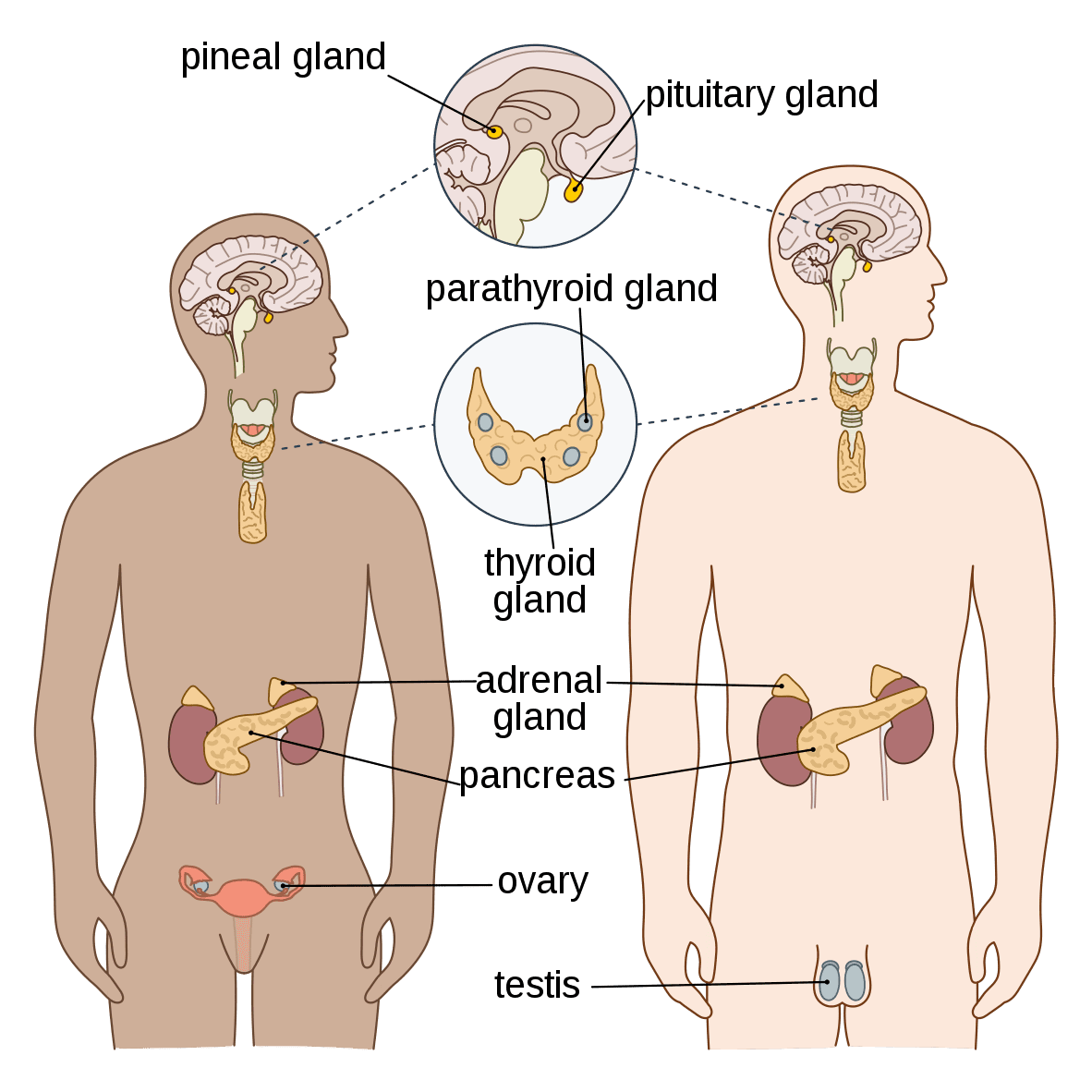10 ESSENTIAL TIPS FOR HOW TO BALANCE HORMONE LEVELS
Dr. Rupinder Ruprai
Hormones have profound effects on mental, physical and emotional health. They play a major role in controlling appetite, weight and mood, among other things.
There are more than 50 different hormones circulating the body, which is why hormonal imbalances can have a detrimental impact on our health and wellbeing.
For example, thyroid hormones oversee metabolism, energy levels, and temperature; while cortisol, plays a role in response to physical and psychological stress. Hormonal imbalance is deeply connected to the food and nutrients we eat, exercise we get, toxins we absorb, weight we carry, and stress levels.
WORRIED ABOUT HORMONAL IMBALANCES?
If you are worried about potential hormonal issues, our handpicked endocrinology team can help.
Get in touch with us on Whatsapp, by Phone or view our special offers and health checkups.
REQUEST AN APPOINTMENT
WHAT ARE HORMONES?
When you hear about hormones you often hear them mentioned alongside glands and endocrine system, hormones are, in fact, produced by glands as part of the endocrine system of the body which secretes hormones from six major types of glands directly into the bloodstream.
By using the human bloodstream, through arteries, veins and capillaries, hormones are able to be reach every part of the body.
The hormones travel in the blood the same way as sugar does in water and each cell which is targeted by the hormone carries either inside or on the outer surface, a chemical receptor that is designed to receive each specific hormone.

Do Hormone Levels Affect Overall Health?
Hormonal changes and hormonal imbalance can significantly impact overall health. Men and women can be impacted differently by imbalances in various hormones, research has even shown hormonal influences on cognitive function, or the ability to think clearly and problem-solve.
Imbalances may result in bloating, sore breasts, headaches, skin issues, sleep disturbances, weight gain and more. Even small changes can result in adverse effects. Symptoms can become worse over time and lead to chronic issues.

WHAT ARE THE GLANDS IN THE HUMAN BODY?
All of us have glands that are designed for hormone production, they help the levels rise and fall and govern overall hormone health.
The principal glands in the human body are:
Adipose Tissue
Adrenal Glands
Hypothalmus
Kidneys
Ovaries or Testes
Parathyroid Glands
Pineal Glands
Pituitary Glands
Placenta
Thyroid Gland
Common Causes of hormonal imbalance
Medical conditions related to hormonal imbalance (diabetes, hypoglycaemia, thyroid disorders, menopause etc), as well as medications for those conditions can all impact hormones.
Other causes of imbalance include injury, trauma, or eating disorders. Certain lifestyle habits and environmental factors also play a role in hormonal imbalances:
Chronic or extreme stress – leads to increased cortisol levels while total hormone production lags. The body steals from its own supplies of available progesterone, to make more cortisol, thus depleting this key balancing hormone with impending oestrogen dominance.
Poor diet and nutrition.
Being overweight.
Poor sleep.
Lack of or excessive exercise.
Stimulants and depressants like caffeine, sugar and alcohol.
Abuse of anabolic steroid medications.
Over exposure to phytoestrogens (plant oestrogens found in soy products).
Exposure to toxins, pollutants, and endocrine disrupting chemicals, including pesticides and herbicides.
Making simple lifestyle changes can help restore proper levels of hormones.
MEET OUR ENDOCRINOLOGY TEAM
- All
- Endocrinology
10 WAYS HELP BALANCE HORMONES & MINIMISE RISK TO HEALTH
1. Get enough good quality sleep
Getting quality sleep helps the body regulate hormone levels.
The adverse effects of sleep disturbance on hormones may contribute to obesity, diabetes, adrenal fatigue. Sleep hygiene can help, for optimum hormonal balance, one should:
Go to bed and waking up at the same time every day
Decrease blue light (from cell phones or computer screens at night) as this disrupts the sleep cycle and may confuse the body, causing it to suppress melatonin thus disrupting the natural circadian rhythm
Get sunlight in the morning, and throughout the day
Drink water first thing in the morning
Create a bedtime ritual
Take a magnesium supplement – This essential mineral help reduce stress and tension, and promotes better sleep. It helps regulate our body clocks, which stabilises hormone release throughout the day and night. It is also useful for relieving PMS and menstrual cramps.
2. Address consumption of potential toxins and chemicals
Many chemicals we are exposed to daily (air, food, body products) are considered endocrine or hormone disruptors as they interfere with hormonal production such as bisphenol A (BPA), found in plastic water bottle and cans; or Xenoestrogens (chemical compounds that mimic oestrogen), that impact testosterone and oestrogen production.
3. Manage stress
There is a strong link between stress, endocrine system, and hormone levels. Chronic Stress leads to an increase in adrenaline and cortisol and contribute to factors such as obesity, changes in mood, and cardiovascular issues.
Practicing biweekly meditation for 6-months can improve insulin levels, as does other de-stressing practices such as Yoga, deep breathing, or even taking your dog for a walk.
Try adaptogens (herbs such as Ashwagandha and rhodiola) that helps adapt to stress and regulate hormones. They help stabilise blood sugar and insulin, improve mood and support adrenal and thyroid function. Green tea contains antioxidants that manages oxidative stress and compounds that boost metabolic health. It is known to reduce fasting insulin levels.
4. Regular Exercising
Regular physical activity reduces the risk of insulin resistance, metabolic syndrome, and type 2 diabetes. The right amount and kind of exercise can positively impact nearly every hormone, including insulin levels. It can also boost growth hormone (fountain of youth) that keeps one lean and energetic.
5. Quit smoking
Tobacco smoke may disrupt levels of several hormones. It alters thyroid hormone levels, stimulate pituitary hormones, and raises levels of cortisol.
6. Avoiding overeating
Regularly overeating may lead to metabolic issues in the long term. Even short-term overeating changes circulating levels of fats and increases oxidative stress.
An increase in ceramides (fat cells in skin) may promote insulin resistance.
7. Reduce or eliminate sugar and other food sensitivities
Sugar keeps insulin elevated and plays a role in metabolic disease and insulin resistance. Eliminating sugar from the diet may help keep levels of insulin in check. Food sensitivities (including gluten intolerance) increases inflammation and hormonal imbalances, including elevated cortisol. Gluten-free diet reduces inflammation and insulin resistance.
8. Eat lots of fiber and gut friendly food
A healthy gut helps with synthesis and regulation of hormones and neurotransmitters. Keep your gut healthy with a balanced diet, abundant in fruits, vegetables and whole foods.
Fiber plays an important role in gut health, and helps regulate insulin and other hormones which help maintain healthy weight.
Many hormones are produced by the beneficial bacteria in the gut (microbiome). Consume fermented foods like kefir, kombucha, miso, sauerkraut and kimchi, that increase the gut microbiome.
9. Add plenty of clean protein to your diet
Hormones are made using amino acids from protein and fatty acids from fats. To keep systems balanced, we need everything in the right amounts. Too much of one macronutrient can throw off the balance of another.
Protein balances hormones via the amino acid arginine, which slows insulin. A diet high in poor quality meat is linked to oestrogen dominance.
There is a massive difference between conscious meat-eating; grass fed, organic and ethically farmed meat and dairy versus mass produced poorly farmed, hormone and antibiotic fed meat and dairy. Vegetarians and vegans have much lower oestrogen levels, a better hormone balance and likely less inflammation.
10. Eating healthy fats
Hormones are produced from fat and cholesterol. Healthy fats maintain a balance of hormones involved in appetite, metabolism, and feeling full. Fats also aid the absorption of vitamins A D E and K. It’s the quality of fat that matters:
Olive oil balances hormone that regulates the appetite and stimulates the digestion of fat and protein.
Coconut oil, coconut milk and coconut butter – Medium-chain fatty acids regulate body’s response to insulin.
Grass-fed ghee or butter
Animal fats from grass-fed animals
Avocados
Nuts & seeds and nut & seed butters
Organic cow or goat/sheep dairy (full-fat cheese, full-fat raw milk, kefir)
Fatty Fish oil or cod liver oil – contribute to heart, digestive health and benefit the brain and central nervous system. The omega-3s in fatty fish play a significant role in balancing mood (depression and anxiety).
Strains
Often called a pulled muscle, strains are muscle tears caused by a sudden stretching or forceful contraction. Strains usually occur when there is a change of speed or direction.
A minor strain occurs when there is minimal tear or damage to the muscle fibers.
A major strain occurs when there is a complete rupture of the muscle.
Strains often occur in the hamstring, quadricep, calf, groin, rotator cuff, and lower back muscles.
Symptoms that have a strain include:
- Feeling pain when you are stretching or contracting the muscle
- Tenderness
- Swelling
- Bruising
















